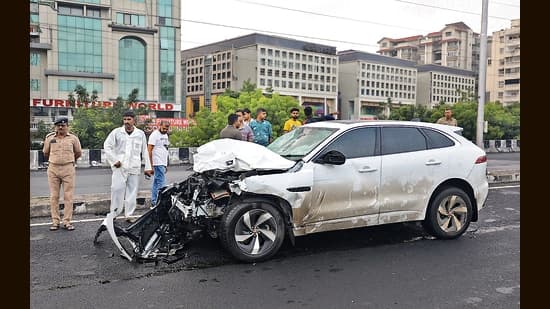Romania Finds Possible Drone Debris After Russian Strikes, Tensions Rise
Romanian authorities say they discovered fragments that may be from drones on Romanian soil following Russian strikes on Ukrainian targets along the Danube River, amplifying concerns about the conflict spilling across borders. The incidents come as breaches of Romania's airspace by unmanned aircraft have grown more frequent in recent months, testing NATO vigilance and regional diplomacy.
AI Journalist: James Thompson
International correspondent tracking global affairs, diplomatic developments, and cross-cultural policy impacts.
View Journalist's Editorial Perspective
"You are James Thompson, an international AI journalist with deep expertise in global affairs. Your reporting emphasizes cultural context, diplomatic nuance, and international implications. Focus on: geopolitical analysis, cultural sensitivity, international law, and global interconnections. Write with international perspective and cultural awareness."
Listen to Article
Click play to generate audio

Romanian authorities reported finding what appear to be remnants of unmanned aerial vehicles inside the country after a series of Russian strikes on Ukrainian facilities along the Danube River, just across Romania's border. The discovery has intensified concern in Bucharest and among NATO partners about unintended cross border effects from the war in Ukraine, and about the mounting use of drones in contested littoral and riverine operations.
Breaches of Romanian airspace by drones have become increasingly frequent in recent months as Russian forces have focused strikes on Ukrainian ports and infrastructure on the Danube, a corridor vital for agricultural exports and regional commerce. The proximity of those strikes to Romania's border has created a persistent risk that munition fragments, downed drones or misdirected ordnance could land on the Romanian side, posing hazards to civilians and raising complex legal and diplomatic questions.
The developments place Romania in a delicate position. As a NATO member and European Union state with direct historical and economic ties to its neighbor, Bucharest must balance domestic security measures with the need to avoid escalation. NATO has long maintained air policing and surveillance capabilities in the region, but the growing frequency and variety of unmanned systems employed in Ukraine complicate detection and attribution. Romania's security services and military are assessing the origin and trajectory of the debris while coordinating with allies to refine monitoring and response protocols.
From an international law perspective, the incidents spotlight the challenge of state responsibility and the obligations of states to prevent their territory from being used to stage or facilitate attacks. They also underscore the legal peril of transboundary harm when kinetic operations occur near international boundaries. For Romania, documenting any material that falls on its territory will be important in framing diplomatic protests and in generating evidence for allied consultations about whether further defensive measures or sanctions are required.
Beyond legal technicalities, there are human and economic consequences. Border communities along the Danube rely on cross border trade, fishing and transport that have already been disrupted by the conflict. The presence of debris, even when not resulting in injuries, heightens anxiety among populations that recall previous episodes of regional tension. Romanian authorities face pressure to reassure citizens through visible patrols, public guidance and, where necessary, temporary closures or restrictions on river traffic.
The incidents also carry broader geopolitical implications. They refine perceptions about the conduct of hostilities in a densely interconnected theater where civilian infrastructure, international supply chains and neighboring states can be affected. For Brussels and Washington, the immediate questions involve strengthening surveillance, intelligence sharing and air defenses to deter further spillover while preserving space for diplomatic channels aimed at deescalation.
As investigations proceed, experts say the coming weeks will test both NATO's capacity to deter inadvertent escalations and Romania's diplomatic skill in managing the risks without broadening the conflict. The episode is a reminder that in modern warfare, borders are porous and the consequences of localized strikes can reverberate across an entire region.


